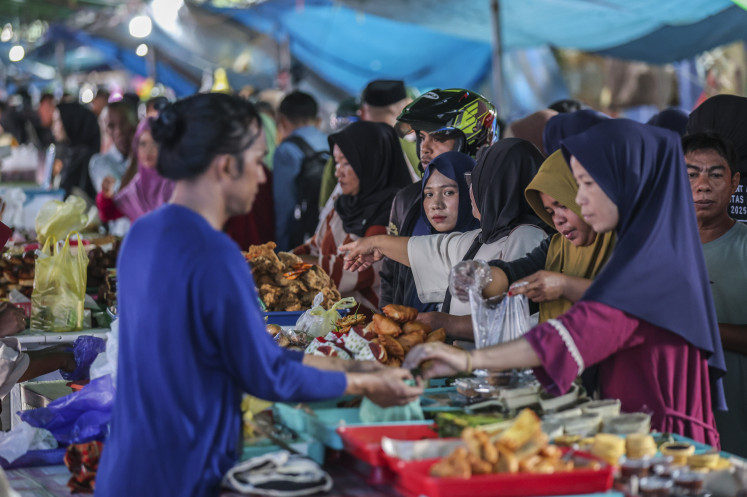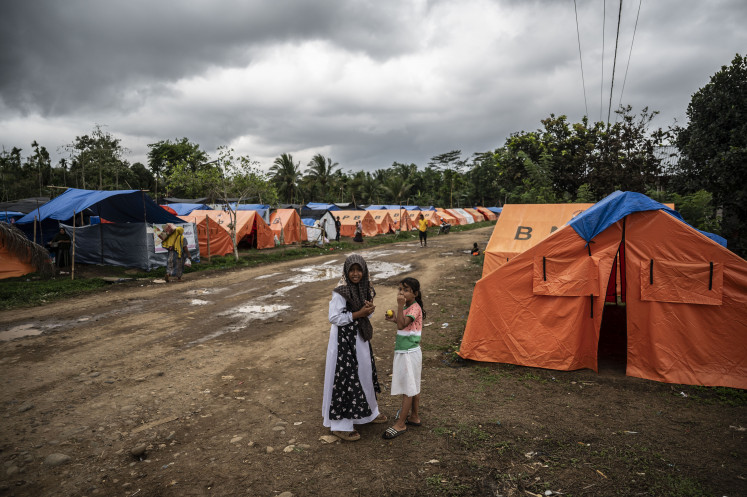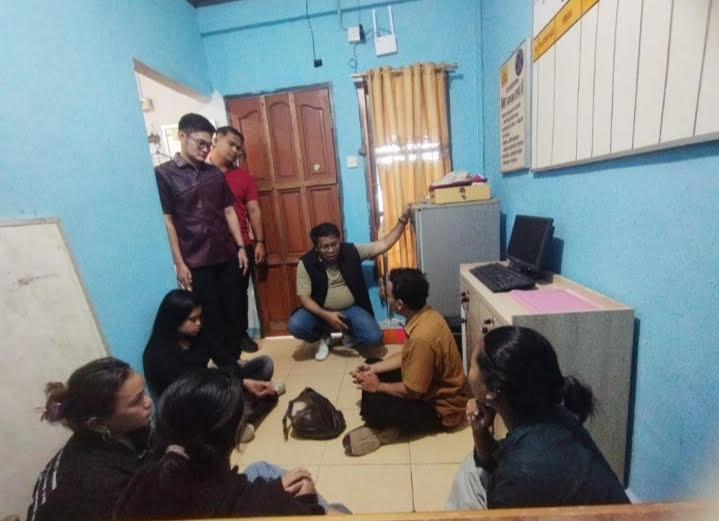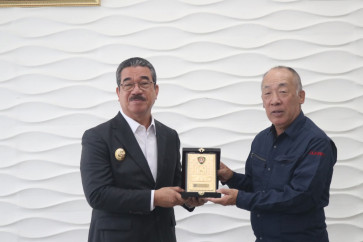Popular Reads
Top Results
Can't find what you're looking for?
View all search resultsPopular Reads
Top Results
Can't find what you're looking for?
View all search resultsJapanese delegation visits N. Maluku, Maluku to trace soldiers’ remains
The Imperial Japanese Army had a large presence in the Maluku region as a line of defense against the southern approaches into the Philippines.
Change text size
Gift Premium Articles
to Anyone
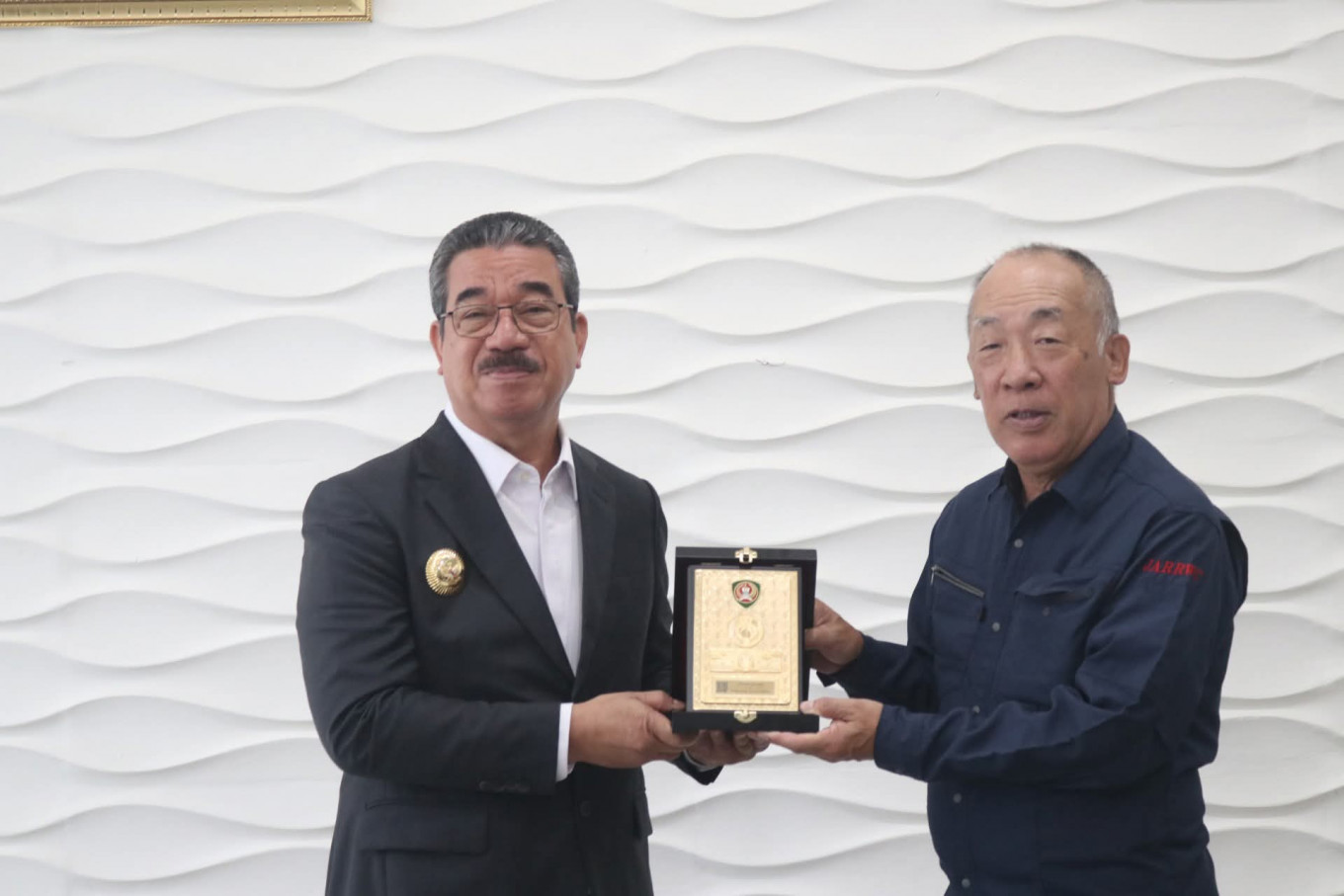 Maluku Governor Hendrik Lewerissa (left) poses with Fumihiko Matsumoto from the Japan Association for Recovery and Repatriation of War Casualties (JARRWC) on Wednesday during at meeting at the governor's office in Ambon. Matsumoto was part of a Japanese delegation visiting Maluku and North Maluku provinces to trace the remains of Japanese soldiers that died during World War II in the eastern Indonesian region. (Courtesy of Maluku provincial administration/-)
Maluku Governor Hendrik Lewerissa (left) poses with Fumihiko Matsumoto from the Japan Association for Recovery and Repatriation of War Casualties (JARRWC) on Wednesday during at meeting at the governor's office in Ambon. Matsumoto was part of a Japanese delegation visiting Maluku and North Maluku provinces to trace the remains of Japanese soldiers that died during World War II in the eastern Indonesian region. (Courtesy of Maluku provincial administration/-)
T
he Japanese government has sent a delegation to North Maluku and Maluku to trace the remains of its soldiers who served in eastern Indonesia during World War II.
The delegation consisted of Ken Miyashita from the Japanese Health, Labor and Welfare Ministry, Masashi Tesuhasi from the Japanese Embassy in Jakarta and Fumihiko Matsumoto from the Japan Association for Recovery and Repatriation of War Casualties (JARRWC).
During a visit to Ambon, the delegation visited the office of Maluku Governor Hendrik Lewerissa on Wednesday, Kompas.com reported from Ambon.
Maluku provincial administration spokesman Kasrul Selang said the delegation wanted to conduct a survey on Japanese soldiers who died during World War II and were buried in Ambon.
“Before going to Ambon, they conducted surveys in Morotai and Tobelo [in neighboring North Maluku province],” he told Kompas.com in a written statement.
Kasrul said the Japanese government sent a team to find the graves of its soldiers based on an old report from the Australian government, known as Report J40.
The report mentioned there were 17 Japanese soldiers who died on Ambon Island, with 16 of them buried in a mass burial site and a soldier buried alone in Laha village.





